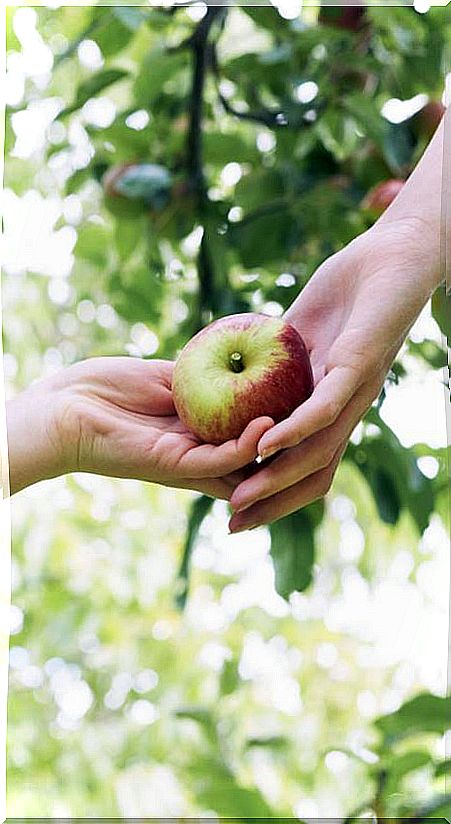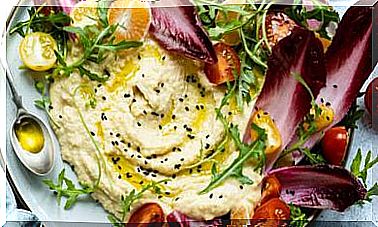Consumption Without Intermediaries: Initiatives That Offer A Fairer Price
Consumer groups, cooperatives and direct purchase from the farmer reduce intermediaries as much as possible, lower costs and bring consumers and producers closer together. The initiatives do not stop growing.

More and more initiatives are emerging that eliminate intermediaries between the consumer and the farmer, which allows access to a greater variety of local foods at a fairer price for all parties. These are some of them:
1. Create consumer groups
Being willing, having a good organization and working as a team are the bases for the proper functioning of consumer groups. Its members come together to buy their food outside of conventional markets.
A group of friends who organize to do the shopping: this is how Conchi Garbi, a member of the organic consumer group La Unión, from the Madrid neighborhood of Hortaleza defines the essence of these initiatives . Something that at first seems simple but needs dedication.
“The option of self – management implies an effort and a commitment that most of the people who participate understand and assume, because they value that they are supporting a model of direct and human relationship between producers and consumers,” says Manolo Santiago, member of the self-managed group Mansalva, in Cáceres.
These groups usually have a horizontal and rotating organization. For example, in Mansalva, as Manolo points out, “every month there is a new coordinating group, of two or three people, who is in charge of the order sheet, contacting producers and distributors …”. In addition, there is usually collaboration between groups or consumer networks to which they can join to, for example, recommend producers or share a place.
A more direct relationship
The effort is compensated by the quality of what they eat and the direct dealings with the producers. Manolo tells us that the group was created, in 2006, with several principles: ” consume healthy and good products, grown in a respectful way, and establish a different relationship model with the people who supply us with food; get to know them directly, the land where work, their problems and illusions, and establish a relationship based on mutual trust and commitment. “
Because, as Conchi says, being part of a consumer group “also has a lot to do with the type of society we want.”
Some initiatives that work
- The Ecoagricultor portal has a directory of organic food consumption groups, with a file for each one. Allows you to search by province.
- Lupierra is a consumer group from Jaca (Huesca). It is constituted as an association and, as such, the family units must associate. It works like most consumer groups: tasks are distributed on a rotating basis.
- Trust and closeness are the bases of the relationship between La Alegría de la Huerta Manchega and its suppliers. This is stated on their blog, where the order form is accessed. They are in Valdepeñas (Ciudad Real) and the distribution is weekly.
2. Direct purchase from the farmer
A fairer price, both for the farmer and the customer, is what is achieved by buying the products grown directly from the farmer. A contact that also strengthens ties and brings us closer to their day to day.
Buying a melon flavored melon : this is the goal that prompted Laura Domènech, a computer scientist by profession, to try organic products. A friend recommended l’Hort de la Carmeta (the Orchard of Carmeta) and, as she tells us, she was “very pleasantly surprised.” Since then he has ordered seasonal fruit and vegetables from them.
More proximity and variety
Since its launch, l’Hort de la Carmeta has evolved remarkably, partly thanks to new technologies. At first the orders were made in a spreadsheet that he sent to the clients. Now they have a website through which orders can be placed 24 hours a day, and a Facebook profile in which they explain the day-to-day life of the farmhouse, located in the Penedès region, south of Barcelona.
For Xavier Solé, closeness to the client is one of the secrets of the success of this initiative, which employs 8 people and has about a hundred permanent clients. The variety of products it offers is another of its strengths. Not only do they have organic seasonal fruits and vegetables, you can also buy preserves, cereals, legumes and oil
The client receives them at the address indicated, based on a schedule and a few days of distribution by zones. “All production is centralized in the farmhouse except the bananas, which come to us from an ecological family farm in the Canary Islands”, Xavier clarifies, for whom his work brings “happiness and tranquility knowing that the families of ‘la Carmeta’ every day they eat healthier and that, little by little, with the help of all, the small ecological world is getting bigger “.
A lifestyle
For Txema Bañeres, organic farming is also much more than his way of earning his bread. “It is a way of life, a way of thinking and acting”, tells us the person in charge of La Senia del Tío Lluís, in Benicarló (Castellón).
This initiative began as a small family garden for own consumption and has become an association of five producers. In La Senia they sell fruit, vegetables, honey, oil and bread with added value: “the proximity, the freshness, the flavor, the commitment to the autochthonous and the traditional or the recovery of old varieties that are not commercial but are reminiscent of flavors from before, “says Txema.
Tastes, textures and aromas of yesteryear that are enjoyed today by between 35 and 40 regular customers, which include individuals, restaurants and consumer groups. With the latter they mainly work with baskets closed three months before. “This guarantees us that what we grow is sold and we improve their prices in relation to what would be a basket on demand”, explains the producer. Private customers can consult the list of products and prices on their Facebook page.
From compost to the key
New technologies have allowed farmers to get closer to the final consumer.
- Agroboca allows you to search for farmers by autonomous community, province and type of product. It includes both ecological and conventional initiatives, clearly identified in each file.
- From Enjoy & Verdura they distribute closed boxes of fruits and vegetables at home throughout Spain. They also have other products such as eggs, honey and olive oil. The garden is in Cambrils (Tarragona) but, in addition, they have a network of farmers who provide them with typical products from other regions, such as Valencia, Almería or the Pyrenees.
- Davifresa is a family farm in Villanueva de Candamo (Asturias), an area known for the quality of its strawberries. Besides strawberries they grow vegetables and apples. They deliver at home in Asturias.
- Ecosecha is a cooperative of farmers with three farms in the Community of Madrid. They distribute closed bags of organic vegetables to open consumer groups, which allow the incorporation of new members.
3. Pioneer cooperatives in the consumption of organic food
Belonging to this type of entity allows you to consume organic food at a lower price than conventional stores and with the convenience of being able to purchase it during business hours.
“The movement of cooperatives, associations and groups of ecological consumption has been gaining strength for a few years,” says the Spanish Confederation of Cooperatives of Consumers and Users (Hispacoop) on its website.
Indeed, there are more and more initiatives of this type, both in large cities and in smaller urban centers. The new groups have references such as BioAlai or La Ortiga, which began their journey 20 years ago. “At that time it was not easy to access organic products in the surroundings and they had a very high price, hence the idea of self-organization,” they explain to us from the BioAlai association, in Vitoria.
In the Seville cooperative La Ortiga, the first step was taken by organic producers. “They needed to give a more constant outlet to their products, and contacted interested consumers,” says Vitalino Lázaro, its current president. Since then, both initiatives have grown to reach 1,000 members in the case of BioAlai and more than 720 in La Ortiga.
Both have salaried staff and stores where they can purchase their products. In addition to food, they sell natural hygiene, cleaning and cosmetic products.
The essential direct deal
Despite having a greater scope than consumer groups or direct sales by the farmer, these entities have not lost the local and close spirit with which they were born, and continue to bet on local producers.
From BioAlai they explain to us that, on occasions, they must resort to intermediaries, although their first option is always that of local and proximity producers, to whom they apply a symbolic margin. “This favors that the final price is fairer for the producers and more accessible for us as consumers”, they affirm.
In La Ortiga more than 80% of fresh food comes from Andalusian producers. “The percentage that we lack corresponds to products that are difficult to produce here,” clarifies the president. Its variety and convenience when buying are two of the keys to large cooperatives and associations, as explained by BioAlai.
“Many people are encouraged to join for the ease of access to ecological products at a much more affordable price, committed to the local economy, responsible consumption, health, but maintaining a more ‘store’ format, which fits for example at different times “.
Where to start?
Setting up an association is usually easier, since they do not need a public deed, render annual accounts or have initial assets. Cooperatives, on the other hand, must have a minimum of three members, register in the cooperative register, have a minimum initial equity of € 3,000 and present their accounts annually.
As compensation, they have more tax benefits and non-members can buy.









